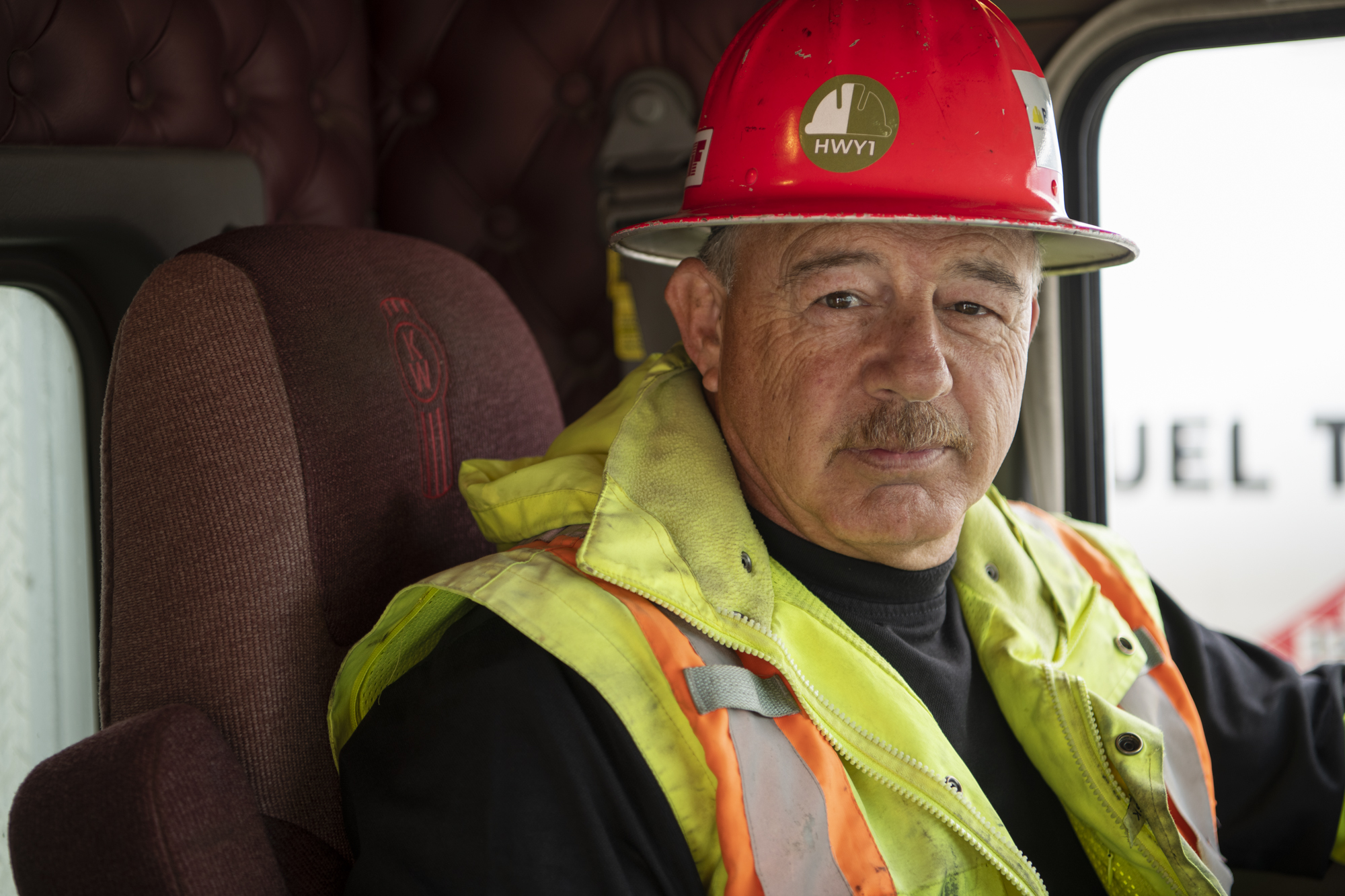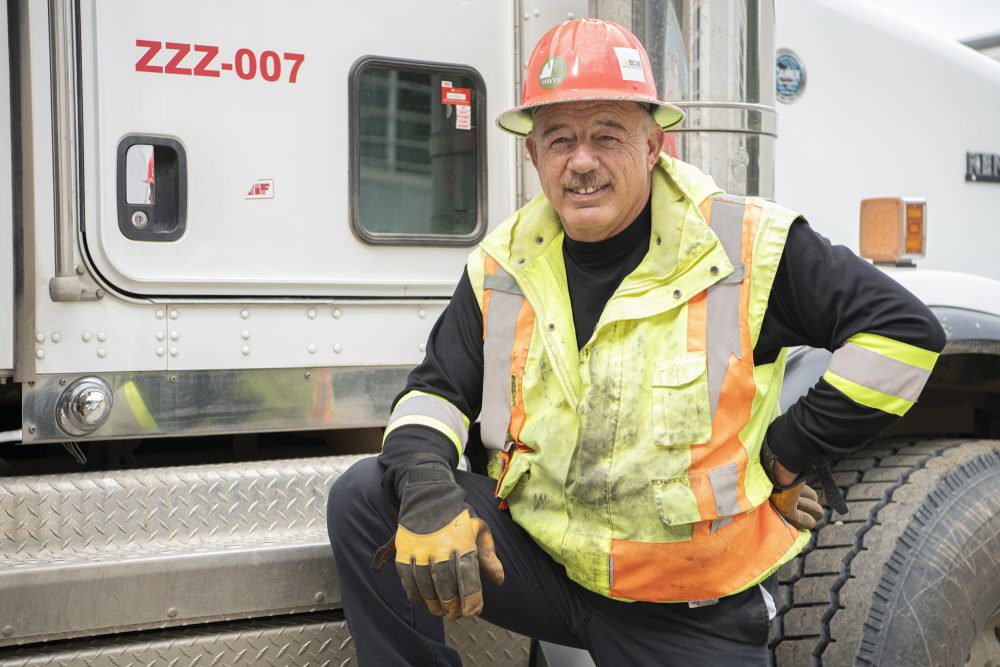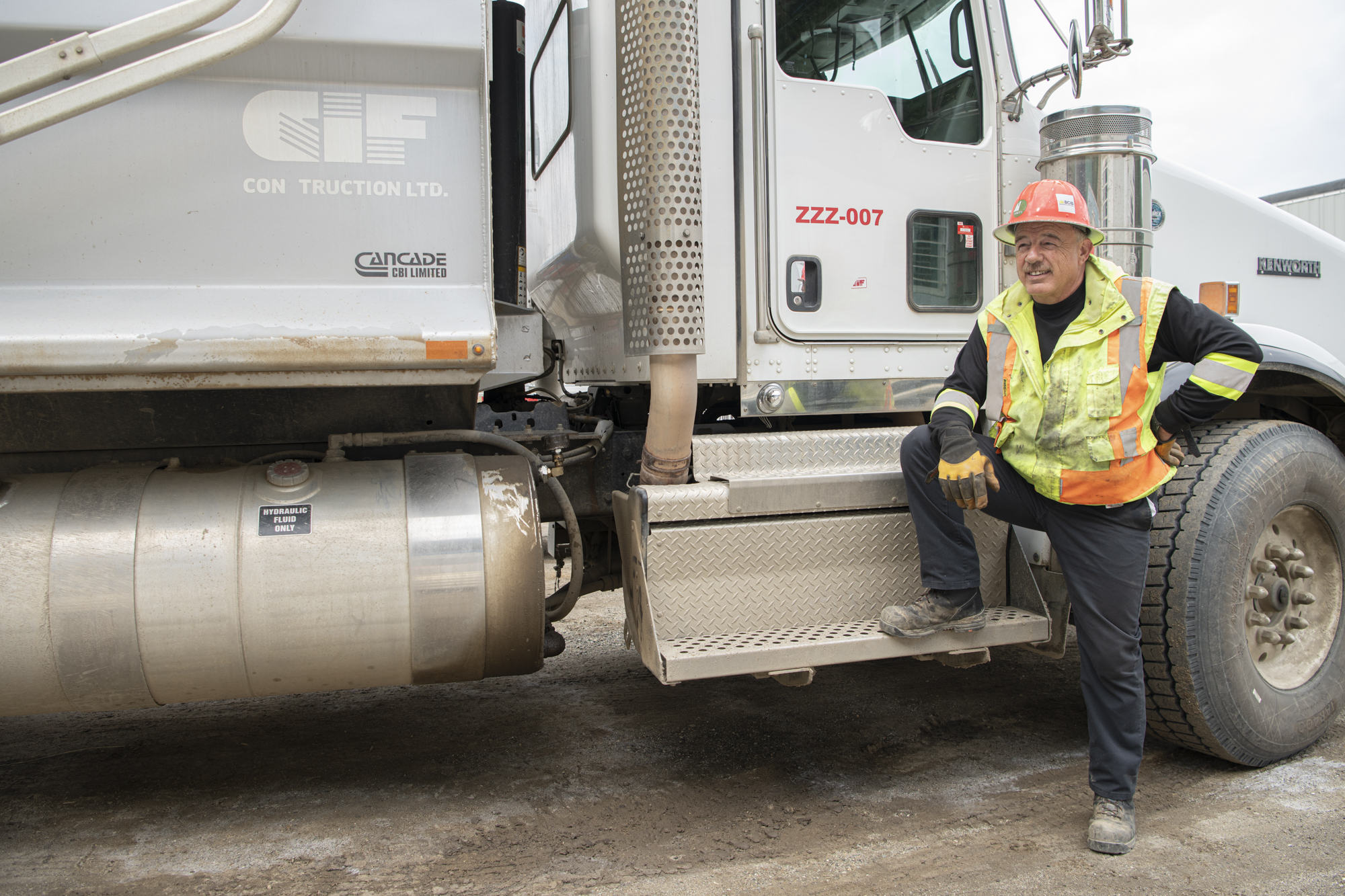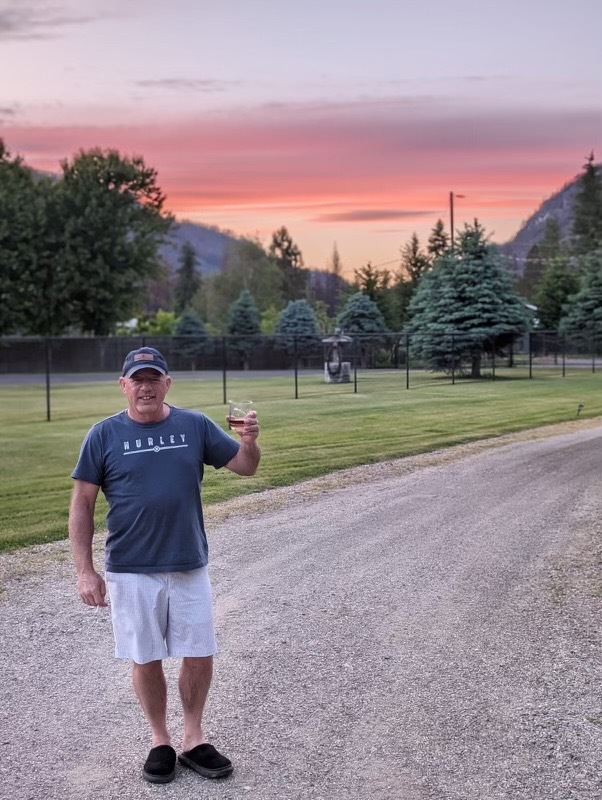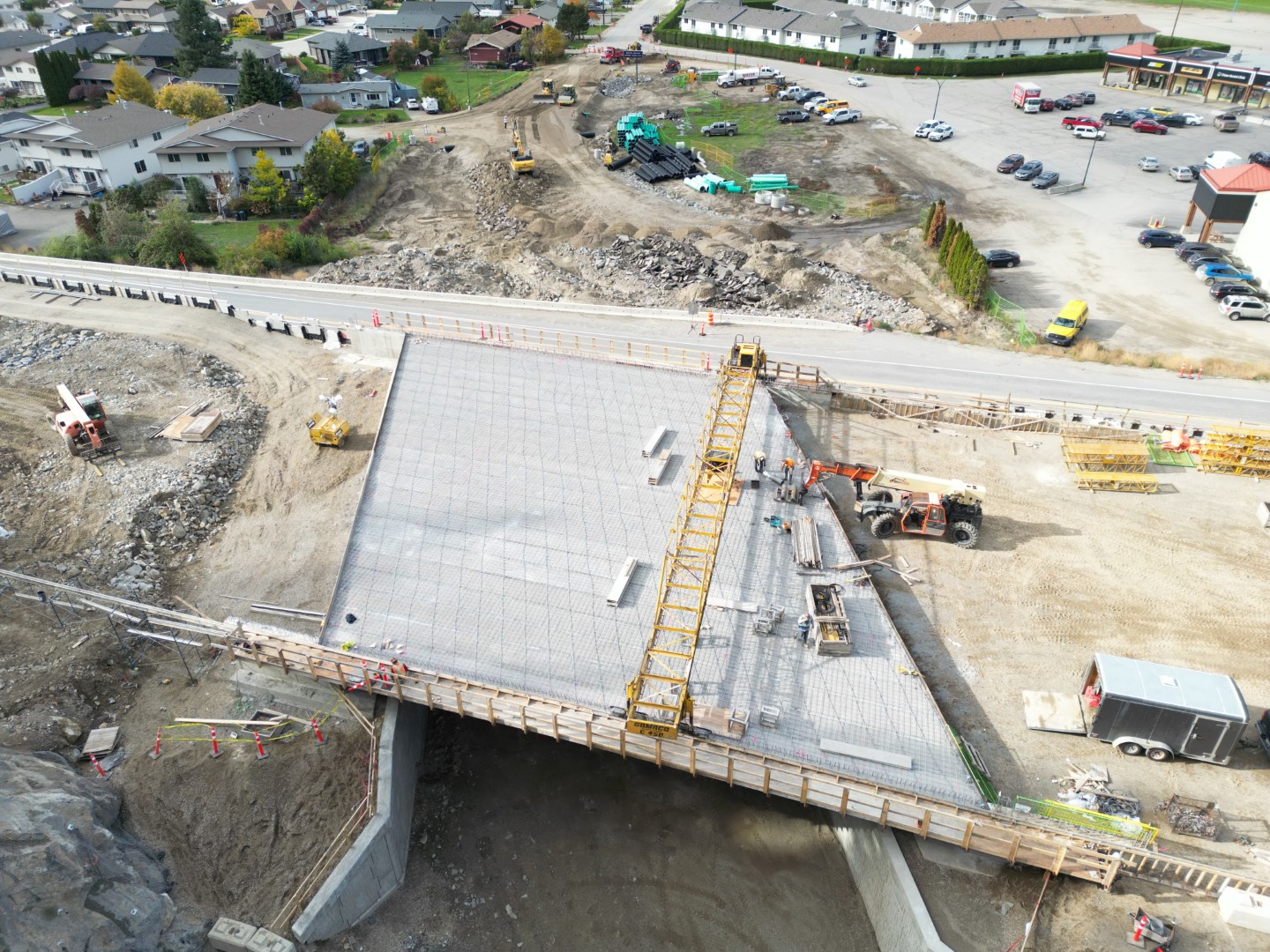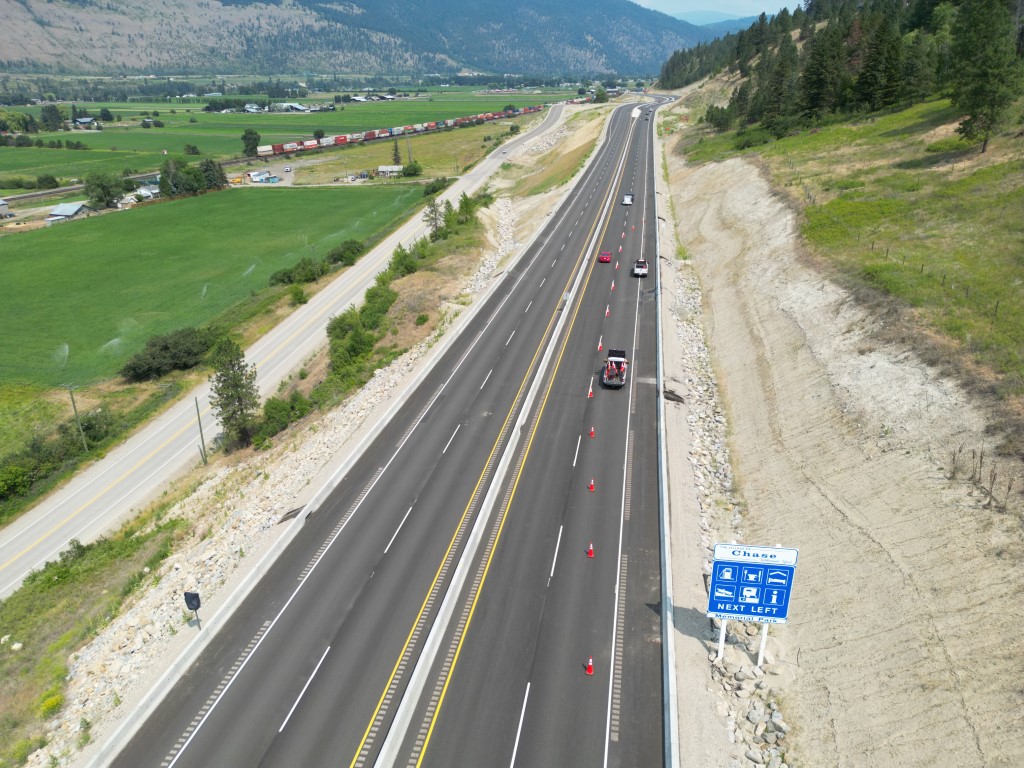I’ve been in the construction industry for about 25 years now. I used to run companies, but after about 20-some-odd years, I was getting a little tired of the corporate world. I couldn’t wait to get away from it all. I switched that up and decided to go get a Class One driver’s license because I enjoyed driving. I started driving demolition trucks in the Lower Mainland. Then I decided to purchase property up here in Scotch Creek, just off the lake, and continued driving trucks.
I’m doing that now on a project near Chase. It’s been fantastic working so close to home, especially with the hours that we work. I was commuting an hour each way in my last job. It’s why I left my last job and even applied with BCIB in the first place. I’m also impressed with how this project is run. Back in the Lower Mainland, when I was working toward obtaining my Class One license on other jobs, not having had any prior experience in the industry, I thought training was a little bit rushed and simple. I was surprised there wasn’t more training in operating the vehicle. I’m 62 now and I want to retire safely one day and spend more time with my family. So, the safety aspect of how workers are trained and supported is crucial to me. When I saw the positive way in which BCIB and the Chase East Project operate, I was more than happy to sign on the dotted line, and from what they’ve told me, they’re quite happy with me.
The Chase East Project involves four-laning the Trans-Canada Highway as well as adding an underpass into Chase to make it safer for cars to come and go into town. It’s crucial work because trying to cross on the highways is nerve-wracking at best. We’re in a mountainous region and weather changes dramatically and quickly. The new road will impact my family that comes up here to visit. It will be safer for my kids and my grandkids.
I’m also glad that BCIB offers Respectful Onsite Initiative training. I think it is a good thing for everybody. The Indigenous history part was a little shocking, though; it was impactful for me. It opens your eyes to the way systemic problems go way back. It’s been nice learning with and from my coworkers, especially with the local Indigenous folks that are onsite. It really opened my eyes to see that courses about Indigenous history aren’t about somebody standing there reading out attacks on you. Somebody is telling you that this is their life, and this is how they got to this point. It was super emotional. If more people would understand that I think things would be a little easier.
It’s also been nice to learn about other cultures and enjoy the way other people live, instead of being fearful. We’re on their [Tk̓emlúps te Secwépemc] lands and in their communities, after all. ROI training offered a space for me to learn about Indigenous history and issues and that’s where understanding comes from.
The more I learn and the longer I work on this project, the more fulfilling it becomes. This will be my second season with BCIB. I’ve really enjoyed it. Not only being close to work, but the people involved are super dedicated and very professional. They put you first and are sympathetic. I’m dealing with my wife’s surgery now and I know that my work wants me to get going on a few things, but right now they say ‘You’ve got to focus on the surgery, that’s more important. So, don’t worry about what we want, just worry about your life.’ Stuff like that really goes a long way. There’s always somebody there to help when I have questions, and my concerns are always dealt with.
Overall, I’m just very happy to be a part of making things safer and saving lives in Chase.
Bob is an End Dump Truck Driver on the Chase West to Chase Creek Bridge Project, part of the Trans-Canada Highway 1 Four-Laning Project.
Images of the Chase Creek Road to Chase West project are copyright of the BC Ministry of Transportation and Infrastructure.

